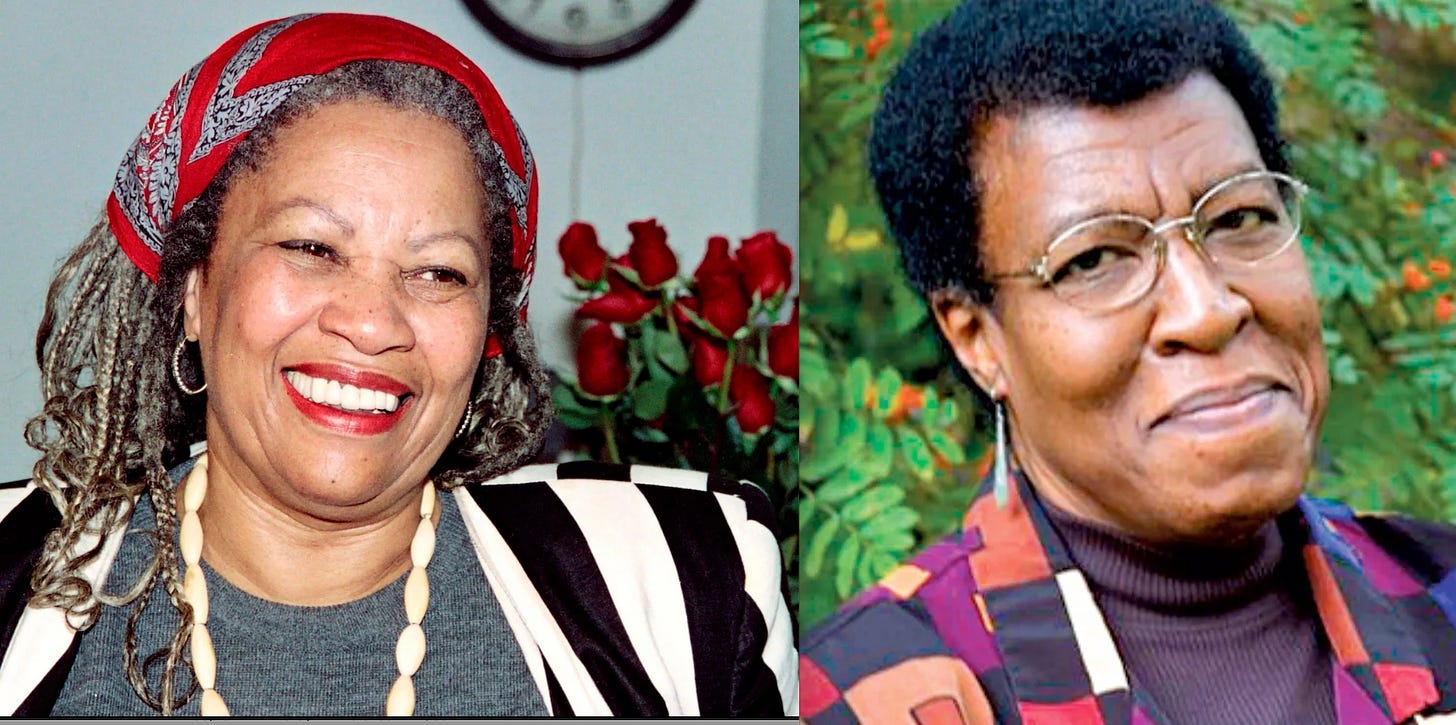Last week we discussed the importance of Homeworlds, why writers might choose to include them in their Story and why they might not. I wanted to circle back to two novels that highlight alternative ways of deploying Homeworlds (or their absence) to powerful narrative effect. Always important to build your toolbox, and no better way to understand a technique than to study its margins.
First, let’s return to Butler’s Dawn. A book that proves that you don’t always have to sell a character’s transportation into a strange new world via Homeworld. And yet given the plot of Dawn (which begins after the destruction of Earth), one would assume that Butler would provide glimpses of Lilith’s Homeworld — either to prepare us for transition into Ooloi captivity or to deepen her character as the story unfolds in ways that elude / exceed the captivity.
The lack of Homeworld in Dawn is intriguing when one places the novel besides Butler’s Kindred — another story where a black female protagonist is transported to a plantation regime against her will. Me, I would have guessed that Butler would have done the opposite of what she did and use Homeworld in Dawn (and skip it in Kindred), as the second world that Dawn’s protagonist finds herself in is way more dramatically different than the second world that Dana ends up in Kindred.
So why did Butler omit Lilith’s Homeworld?
I would argue that Butler did it strategically — she needed the Ooloi captivity to be narratively inescapable, wanted readers to be trapped in that hideous “trade” with Lilith without being able to escape, even temporarily, into a better flashback past. (And then there is perhaps a deeper possibility that Lilith’s lost Earth Homeworld might stand in for the lost African Homeworld of all New World people of African descent.)
Rather than helping the second world, a Homeworld in Dawn would have hampered it.
A beautiful example of strategic elision of the Homeworld.
(I also think Butler was being slyly brilliant by allowing the other survivors of Earth’s destruction to provide, in their messed-up interactions with Lilith, an oblique view of what that missing Homeworld might have been like for someone like Lilith, beginning with the Paul Titus fracaso.)
The second text worth studying for Homeworlds is Toni Morrison’s Beloved.
In this greatest of all novels, Morrison gives her protagonist Sethe an enslaved past as trenchantly realized as her ostensibly free present. In a “plainer” narrative, the Sweet Home Plantation would be Sethe’s nightmare Homeworld — an evil, intrusive, but relatively stable past that helps to inform her Ohio present (and inform her Medean crime against her children), but what quickly becomes apparent in Beloved is that these temporalities — Ohio and Sweet Home — are not only unstable, they are at war within Sethe, for Sethe. The trauma of enslavement is deep enough to unravel time, and as a result Sweet Home threatens to reverse the normal course of reality —threatens to make the present Ohio past —and the past of Sweet Home present.
It's one thing for a protagonist (and their world) to be informed by their Homeworld; it’s quite another for a protagonist (and their world) to be colonized by their Homeworld.
In order to deepen our moral epistemological and ontological understanding of slavery, Morrison narrativizes a war between the Homeworld and the Storyworld, between the rememory of slavery past and the forgetting of the slavery-wrecked present, exploring the collective mourning and intimate integration that alone can lay such disfigured temporalities to something approaching rest. A war that seems to suggest that unless people of African descent forge a Homeworld out of both our past and our present, we will always suffer from the black time traveler's dilemma — exiled from our present flesh, overwhelmed by all our yesterdays without some kind of tomorrow, never our own best thing.





Haven’t read “Dawn” yet, only “Kindred” and “Parable of the Sower,” which are both great, and but “Beloved” is far and away one of the best novels I have ever read—leading me to read most of Morrison’s other novels. What a gift to the world!